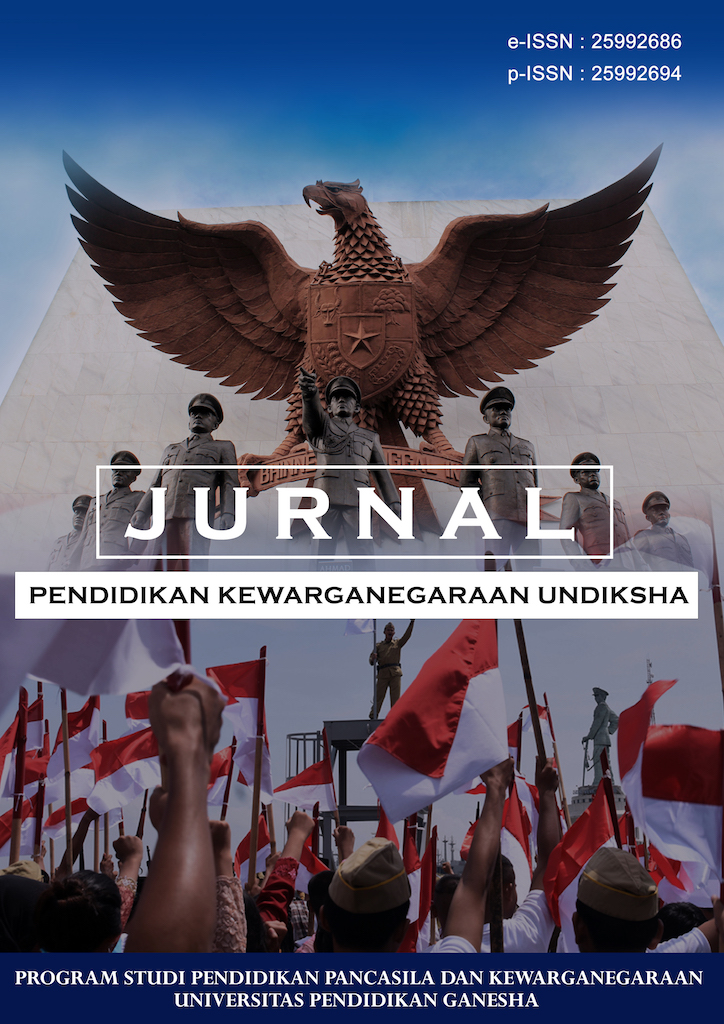KAPASITAS HUKUM INDONESIA SEBAGAI ANGGOTA TIDAK TETAP DEWAN KEAMANAN PBB DALAM PENANGANAN MASALAH PERUBAHAN IKLIM GLOBAL
DOI:
https://doi.org/10.23887/jpku.v8i2.24760Abstrak
Climate change is a serious problem that threatens humanity in the world, and this can be categorized as a non-traditional security problem known as human security. Climate change in the world is marked by the increase in the temperature of the earth's air and rising sea levels due to the melting of ice in the polar regions. This condition will cause disasters both natural disasters such as drought and forest fires, as well as non-natural disasters such as conflicts and epidemics, which will ultimately threaten world peace and security. In January 2019, Indonesia was officially elected as a non-permanent member of the UN Security Council. The election of Indonesia is evidence of the confidence of the international community in Indonesia's diplomatic capabilities. Indonesia will carry out its role as a non-permanent member of the UN Security Council for two years, from 1 January 2019 to 31 December 2020. With its position as a non-permanent member of the UN Security Council, Indonesia is expected to be actively involved in efforts to tackle climate change. Based on this, in this paper, the author will raise the topic of "The Legal Capacity of Indonesia as a Non-Permanent Member of the UN Security Council in Handling Global Climate Change Issues”.
Unduhan
Diterbitkan
Terbitan
Bagian
Lisensi
Authors who publish with the Jurnal Pendidikan Kewarganegaraan Undiksha agree to the following terms:
- Authors retain copyright and grant the journal the right of first publication with the work simultaneously licensed under a Creative Commons Attribution License (CC BY-SA 4.0) that allows others to share the work with an acknowledgment of the work's authorship and initial publication in this journal.
- Authors are able to enter into separate, additional contractual arrangements for the non-exclusive distribution of the journal's published version of the work (e.g., post it to an institutional repository or publish it in a book), with an acknowledgment of its initial publication in this journal.
- Authors are permitted and encouraged to post their work online (e.g., in institutional repositories or on their website) prior to and during the submission process, as it can lead to productive exchanges, as well as earlier and greater citation of published work. (See The Effect of Open Access)










